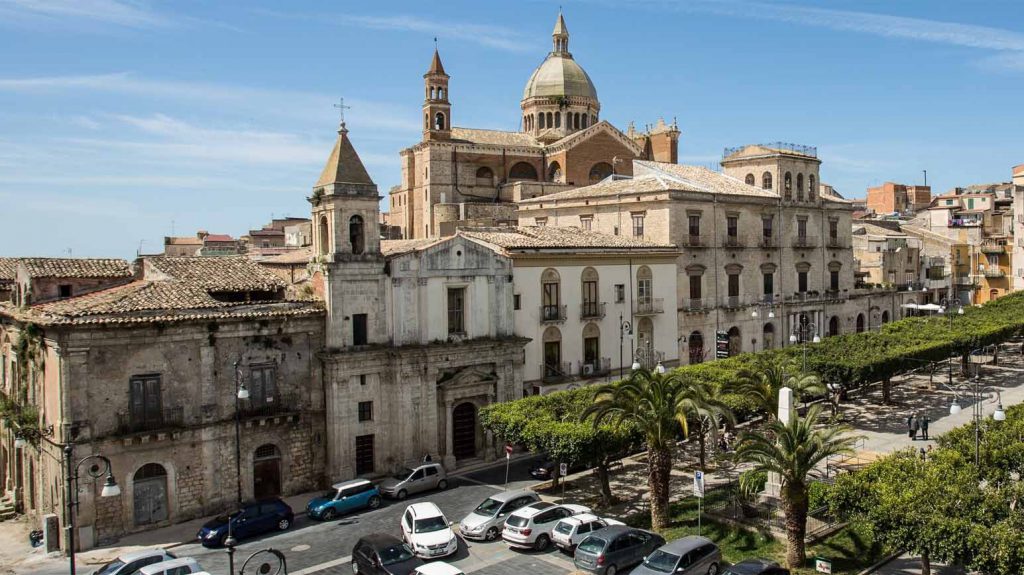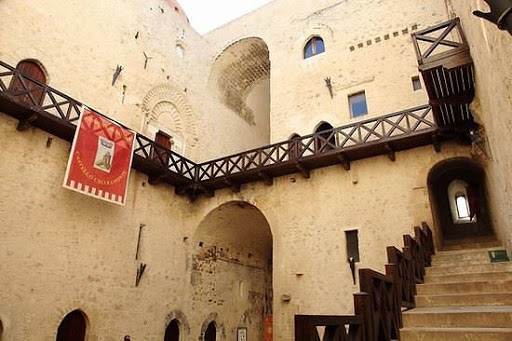Villa Gioiosa is less than 2km from the town center, finding all amenities you can think of on one long road at the entrance of the town including excellent restaurants, cafe’s, bars & supermarkets, ideal from those wanting a romantic break, family reunion, large groups & for families with children.
There are a number of wonderful restaurants within the area and town that are recommended.

It is easy to relax and enjoy the steady life of this rural community, a community that will give you a family style welcome whether enjoying a coffee outside one of the many bars, or a pizza in one of several pizzeria‘s or just mingling with the locals at the regular Friday morning massive open air produce market you must not miss.
If you feel like a drink during the morning, afternoon or evening you will find most local bars open all day until the last customer leaves. Try our local espresso coffee, it’s so tasty.
We love this area simply because it is really nice & peaceful, with our villa located in open countryside you can sit sipping wine under one of our panoramic veranda’s or under our Large Temple stlye Gazebo & hear birds singing along, it’s so relaxing, especially first thing in the morning whilst drinking coffee.
We love this area also because it is still relatively untouched by lots of tourism, here you will feel like you are really in Sicily! The locals are so friendly and keen to help you get around. What we like most of all is how close we are to all fascinating places of interest and being only 1 1/2 hours from Catania airport.

Cultural Park
Seven small courtyards linked together are home to a series of small palaces and a few small but beautiful gardens of Arab unity.
It has been placed in sixth place in the world as a tourist destination for lovers of contemporary art preceded by Florence, Paris, Bilbao, the islands of Greece and New York and has already become an important and successful cultural district for artists, tourists and residents of all ages to enjoy recreation, becoming a model for other related organizations that have sprouted up: Urban Network (FUN) and a new young artist project in Modica Alta, Borgo degli Artisti
The project is a contemporary art complex that occupies the entire historic centre, there’s a design corner, a tea garden, a bookshop, a sandwich shop, a champagne bar, and a concept store.
Exteriors of buildings are used as canvases for huge paintings and sculptures by artists such as Fabio Melosu; courtyards feature installations, including Fabio Novembre’s giant pot-chairs; and one building houses the world’s biggest permanent collection of work by US fashion photographer Terry Richardson.
Cultural Park ranked sixth most popular international tourist destinations for contemporary art lovers, according to the British blog includes five different art galleries and spaces for permanent and temporary exhibitions.
New temporary exhibitions are set up every four months, contributing to a well-rounded calendar of artistic attractions.
The project was inspired by three international references in the world – Palais de Tokyo in Paris; the city of Marrakech, in Morocco; and Camden Town, in London.

Castle of Chiaramonte
Castle of Chiaramonte was built in the 13th century but exactly when and by who is not known. Some think it was built in 1239 by Frederick II, Duke of Swabia and Holy Roman Emperor as a hunting lodge because of its architectural style. Others think it was built around 1270, when it was first mentioned, by members of the Chiaramonte family.
In the beginning of the 14th century the castle was still possessed by the Chiaramonte family. In 1392 Manfredi Chiaramonte was executed for rebelling against the Crown and the castle was sold by Martin I, King of Sicily, to Raimondo Moncada Peralta.
In 1398,
he also was accused of treason, convicted and stripped of all his
property and the castle went to Emilio Perapertusa. His successors
restored the castle in 1488.
The Castle of Chiaramonte is more
palace than a castle, although it was originally surrounded by a
crenellated wall with towers at the corners.
A nice castle, especially its interior.
Mother Church (Chiesa Madre)
The Chiesa Madre (literally the “”Mother Church”” or main church of the town) boasts an attractive façade and a dome supported by a drum with arches.
The Mother Church, dedicated to Our Lady of the Assumption, was built in the 1600s.
Inside, there is a beautiful wooden crucifix which is dated from the 1500s. Another attractive Baroque church is the Chiesa del Rosario built in the 18th Century, with its wonderful caisson ceiling. The Chiesa della Madonna dell’Itria, and the Chiesa del Carmine, are also worthy of note.




